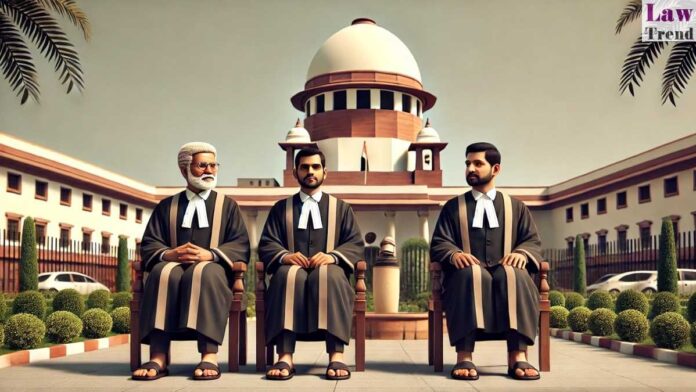The Supreme Court on Monday sought responses from the Madhya Pradesh government and the High Court registry on a petition challenging the refusal to raise the retirement age of judicial officers in the state from 60 to 61 years, despite the apex court’s earlier direction permitting such an increase.
A Bench led by Chief Justice B.R. Gavai and also comprising Justice K. Vinod Chandran issued notices while hearing a plea filed by the Madhya Pradesh Judges Association. The association has questioned the administrative decision of the Madhya Pradesh High Court, which declined to enhance the retirement age even after the Supreme Court, in its May 26 order, had clarified that there was “no impediment” to doing so.
Background of the Dispute
Earlier this year, the apex court had directed the Madhya Pradesh High Court to decide the matter administratively within two months, after holding that there was no legal obstacle in raising the retirement age of district judges to 61 years — similar to what had been permitted in Telangana.
However, the petitioner association said that the High Court orally communicated its decision through the Registrar General on August 22, 2025, without providing a copy of the administrative order. The court allegedly refused to share the decision, stating that the proposal had been kept in abeyance or rejected “as there was no present requirement to do so.”
Calling this attitude discriminatory, the plea stated, “The negative attitude adopted by the Hon’ble High Court of Madhya Pradesh in this matter of legitimate expectation is a clear example of step-motherly treatment meted out to the judicial officers at the hands of their own guardian court.”
Petitioners’ Argument
Appearing for the Judges Association, senior advocate Ajit S. Bhasme argued that the association was only seeking parity with judicial officers in Telangana, where the age has already been enhanced to 61 years following the Supreme Court’s clarification. “We are not seeking enhancement to 62 years, only to 61 years, as permitted for Telangana,” he submitted.
Court’s Earlier Stand
The top court had previously noted that in the All India Judges Association case, it had allowed Telangana to raise the superannuation age of district judges to 61 years, observing that there was “no legal impediment” to such enhancement. Referring to that precedent, the CJI had said, “In that view of the order, we do not find that there should be any impediment in permitting the State of Madhya Pradesh to increase the age of superannuation of judicial officers working in the State to 61 years.”
Taking note of the fresh petition, the Bench has now sought replies from both the Madhya Pradesh High Court and the state government. The matter will be taken up again after two weeks.




